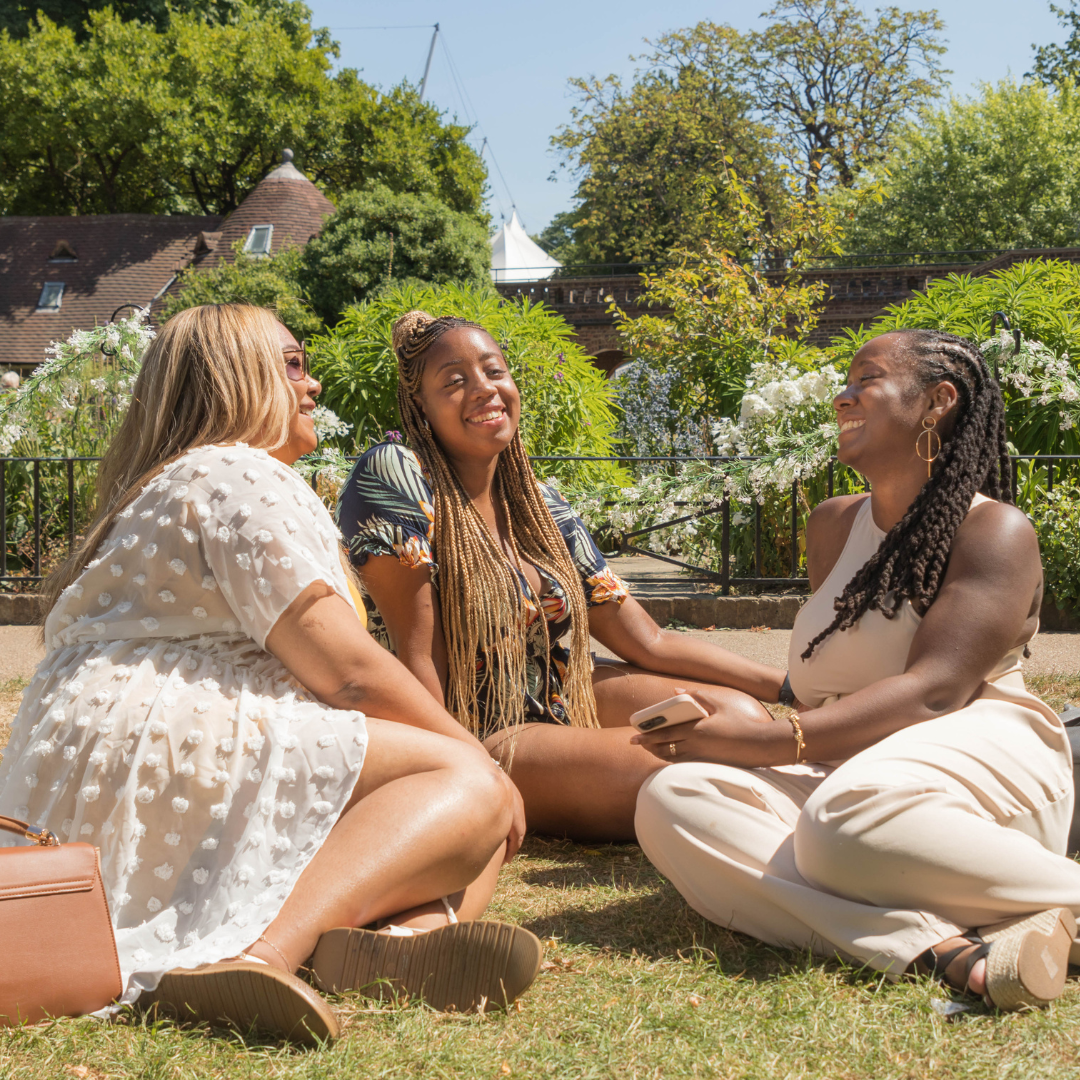
In a world that often emphasises the value of social connections, there’s an important distinction to be made between being alone and feeling lonely.
Many people associate solitude with a sense of isolation or sadness, but the truth is that being alone can be a fulfilling and rejuvenating experience. 😊
In this blog post, I will explore the nuances of being alone versus feeling lonely, understanding the importance of solitude, and embracing the positive aspects of both states.
Let’s get to it. 💕
The Difference Between Being Alone and Feeling Lonely:
Being Alone:
Being alone is a state of physical solitude, where you find yourself without the company of others. It can occur by choice or as a natural consequence of circumstances. Spending time alone provides an opportunity for self-reflection, relaxation, and personal growth.
It allows you to engage in activities that bring you joy, pursue hobbies, or simply enjoy a moment of peace. Being alone can be a deliberate choice, a time to recharge and connect with oneself. 🥰
Feeling Lonely:
Loneliness, on the other hand, is an emotional state that arises from a perceived lack of meaningful connections. It’s possible to feel lonely even in a crowded room if the connections are superficial or unfulfilling.
Loneliness is often characterised by a sense of emptiness, isolation, or a longing for deeper human connections. It’s a complex emotional experience that can impact mental and physical well-being. 😟
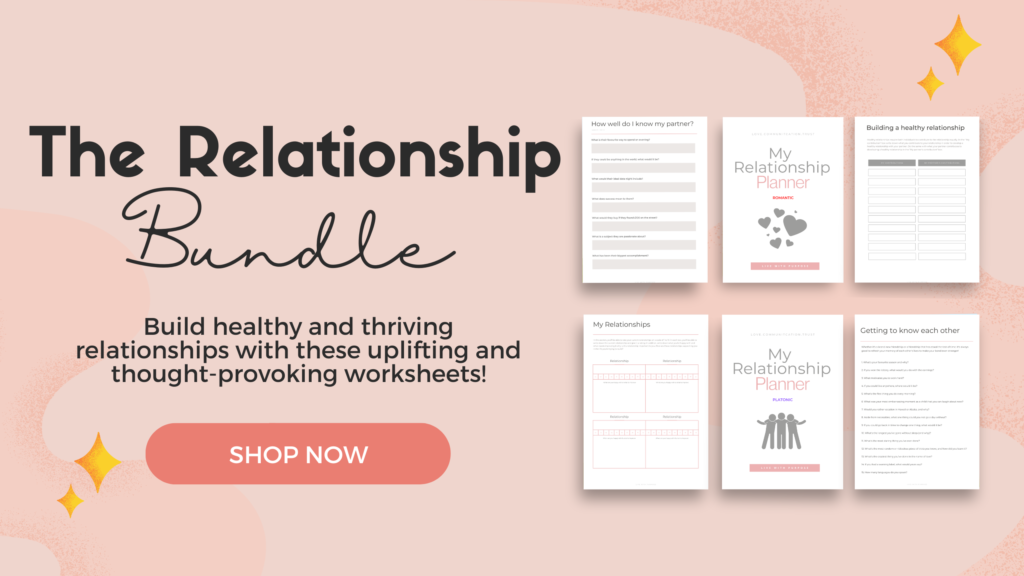
Embracing the Positive Aspects of Being Alone:
1. Self-Discovery:
Being alone provides an opportunity for self-discovery. It allows you to explore your thoughts, feelings, and interests without external influences. Use this time to reflect on your goals, values, and aspirations. Self-discovery is a crucial aspect of personal growth and can lead to a deeper understanding of oneself.
2. Independence:
Embracing solitude fosters independence. When you’re comfortable being alone, you become more self-reliant and less reliant on others for your happiness. This independence can empower you to make decisions based on your own needs and preferences, leading to a more authentic and fulfilling life. 🥰
3. Creativity:
Solitude often sparks creativity. When you’re alone with your thoughts, you have the mental space to generate new ideas, think critically, and engage in creative pursuits (yaay). Many artists, writers, and innovators find inspiration in moments of solitude, leading to the creation of meaningful and impactful work. 🎨
4. Rest and Rejuvenation:
Being alone allows for rest and rejuvenation. In a world filled with constant stimuli, taking time for solitude can be a form of self-care. It provides an opportunity to relax, recharge, and focus on activities that bring you peace and joy, contributing to overall well-being.
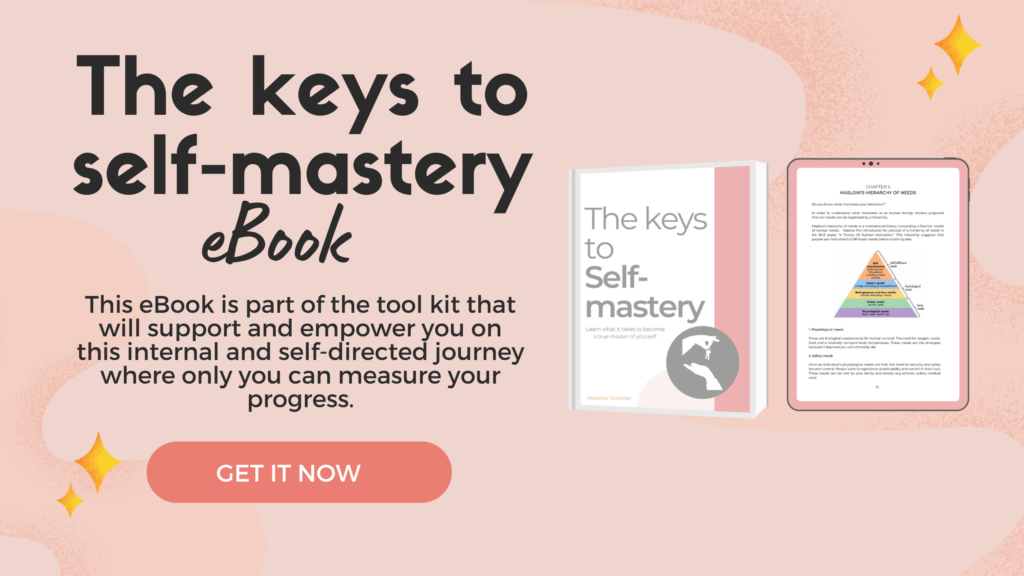
Addressing the Challenges of Feeling Lonely:
1. Cultivating Meaningful Connections:
If loneliness arises from a lack of meaningful connections, focus on cultivating relationships that nourish your soul. Seek out individuals who share your values and interests. Join clubs, organisations, or communities where you can meet like-minded people. Focus on getting yourself out there. Quality connections are often more fulfilling than a large social circle. 🫂
2. Volunteering and Giving Back:
Engaging in volunteer work or contributing to your community can alleviate feelings of loneliness. By helping others, you not only make a positive impact on the world but also connect with individuals who share a common purpose. Volunteering provides a sense of belonging and fulfillment.
3. Seeking Professional Support:
If loneliness becomes a persistent and overwhelming emotion, maybe consider seeking professional support. A therapist or counselor can provide guidance and a safe space to explore the root causes of loneliness. Addressing these issues with professional help can lead to a more fulfilling and connected life. 🫶
Finding Balance:
The key to a fulfilling life lies in finding a balance between being alone and fostering meaningful connections. Embrace solitude as a time for self-discovery, creativity, and rejuvenation. At the same time, actively cultivate relationships that bring joy and fulfillment. Recognise that both states are essential for a well-rounded and satisfying life. 💕
Conclusion
Being alone and feeling lonely are two distinct experiences, each with its own set of opportunities and challenges. Embracing solitude allows for self-discovery, independence, creativity, and rest. However, if loneliness creeps in, it’s crucial to address it by cultivating meaningful connections, volunteering, or seeking professional support. You are not alone. ❤️
Understanding the nuances between being alone and feeling lonely empowers you to navigate both states with intention and purpose. Ultimately, finding a balance between solitude and social connections contributes to a rich and fulfilling life. Embrace the positive aspects of being alone, foster meaningful connections, and savor the journey of self-discovery in this beautiful dance between solitude and companionship.
Pin this post for a reminder 📌 👇
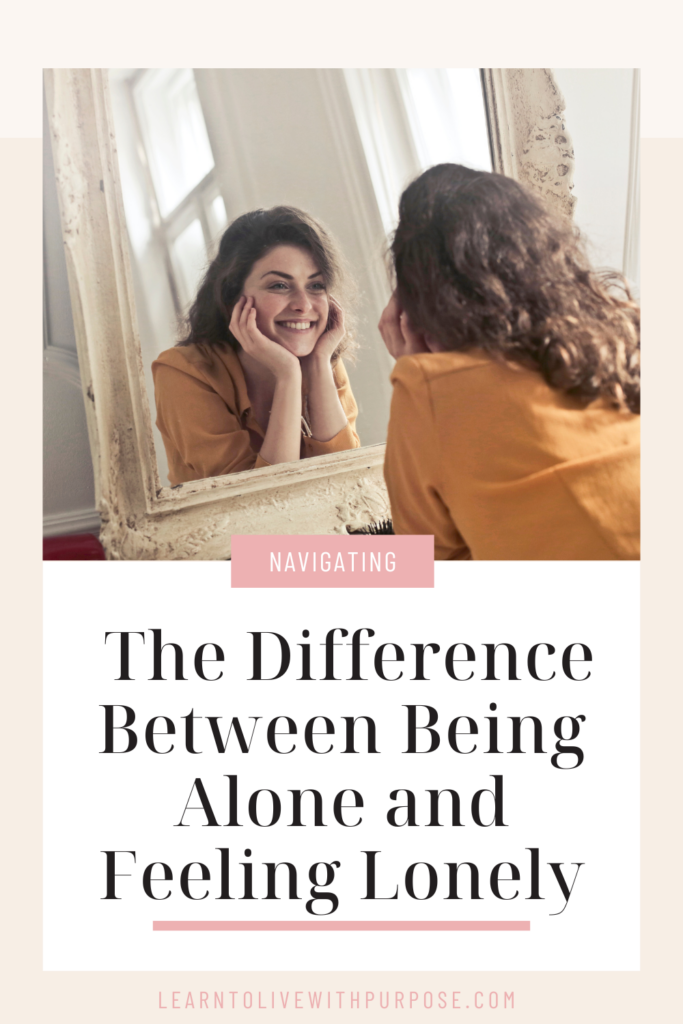
Related Blogs
Things to Say “No” to for you to Live a Happier Life
How to Stop Settling For Less Than You Deserve
How to Become the Best Version of Yourself: A Guide For 20-Somethings
It can be hard. Life — especially in the 21st century — comes at you fast.
You’re constantly bombarded by information from social media, advertisements, and everything in between. It can feel like you’re always on alert, trying to stay informed about the latest trends and hot topics so that you don’t miss out on anything. 🥵
If you are anything like me, then you definitely value living a good life. You know that the little things count and that it’s not just about working hard, but also about playing hard too.
Intentional living is the practice of intentionally making decisions that align with your values instead of letting outside forces dictate your actions.
Intentional living is more than just putting your ducks in a row – it’s about creating an abundant and fulfilling life for yourself. 🦆
It means choosing to live deliberately, thinking through your choices, and focusing on what matters most to you. Intentional living is a process of continually identifying your goals and re-evaluating them as new circumstances arise.
It’s committing yourself to being the best version of yourself on a daily basis. And the best news is that you don’t need to give up any of your inherent activities or interests in order to incorporate intentional living into your life.
In an age where we are all scrambling to keep up with what everyone else is doing, intentional living offers a breath of fresh air and a much-needed break from unhealthy stressors. 😔
If you want to live a more balanced life, read on to discover why intentional living is the best thing you can do for yourself right now.
Set your intentions for the day, week and month – Intentional Living 101
Every day, set some intentions for yourself.
What do you want to get done? What do you want to accomplish? What type of mindset do you want to put yourself in? 🤔
Your intentions for the day can help you to stay focused on what is important and to avoid getting caught up in any unhelpful activities or thoughts.
Your intentions for the week are important for setting the tone for your week and giving yourself some structure. It may sound rigid, but having a set schedule can help you to get more done. 🤷♀️
You should also set some intentions for the month so that you can plan out your schedule and make sure that you are on track with your long-term goals.
RELATED: Want to learn more about setting goals? Check out our 4-week mini-course “How to set goals and achieve them“

Declutter and organise your life
We have all heard that ‘ A cluttered desk is a cluttered mind.’
The same can be said of a cluttered life. If you have tons of stuff lying around that you have no room or need for, then it’s likely that you are struggling to make time for pursuits that are important.
Making time for things that help you grow as an individual can be challenging if you are bombarded with commitments that are unimportant to you and your development. 😬
Clutter can be anything from material possessions to thoughts and emotions.
You can start to declutter your life by writing down some of the things that you feel are holding you back from growing.
Mental clutter can be cleared by getting rid of distractions and changing your mindset so that you are less likely to be affected by it. 😌
Spend time with people who support you
You can’t please everyone and you shouldn’t even try.
When you are in your early 20s, you are likely to be going out and spending time with all sorts of people, whether you know them well or not.
People can influence you differently; some can be positive, whereas others can be negative. 😒
It is extremely important to be selective with the people that you spend time with. That doesn’t mean that you have to be rude and shun everyone who doesn’t ‘meet your standards’.
It just means that you should be mindful of who you allow into your life. You should be spending time with people who have a positive influence on you – people who encourage you to grow and who support you in your ambitions. 💕

Take care of your mental health.
Mental health is something that is often overlooked in the world of instant gratification and instant results.
It’s easy to get caught up in the idea of ‘I want to be happy now!’ instead of committing to the long-term changes that need to happen in order to achieve the happiness that lasts more than a couple of minutes or hours. 🤨
Mental health might not seem relevant to your daily life, but it can actually have a serious impact on your productivity and general well-being if it’s neglected.
You should be mindful of your mental health by committing to a consistent exercise routine and a healthy diet. 🏃♀️
You should also set aside time to totally unplug from the stresses of modern life. It is also important to reduce the amount of stress in your life as much as possible.
Stress is the enemy of happiness and productivity.
Commit to a cause that is important to you
By committing to something bigger than yourself, you will not only be helping others but you will also be helping yourself.
When you dedicate yourself to helping others, you stop thinking about yourself and your problems for a bit. You start to focus on the needs of others and this will help you realise that you are not alone.
There are others out there that are in need of something. Whether that is companionship or just a listening ear. 🤗
You can choose to commit to anything that you are passionate about. It can be anything from working with animals to helping out at a homeless shelter.
It is important to remember that you do not have to commit to something permanently to be helpful. You can commit yourself to a cause for a specific amount of time and then move on when you feel that you have done everything that you could. ❤️

Be mindful of your time and energy
A lack of time is one of the reasons that people give for why they don’t live more intentionally. 👀
However, the truth is that people waste a lot of time in their daily lives without even realising it. You can combat this by being mindful of the things that are eating up your time. Because at the end of the day, there is time. You just have to make what you want a priority.🤷♀️
When you are spending time on certain activities, you should be asking yourself why you are doing them and how they are helping you to reach your goals. The same goes for your energy.
You have a finite amount of energy for each day and it is important that you are aware of how you are using it.
Don’t hold yourself to impossible standards
It is good to have high standards for yourself, but you need to be realistic with them. 👈
If you are always expecting more from yourself than you reasonably can achieve, then you will end up feeling unproductive, frustrated and down on yourself.
There will be days when you don’t meet your expectations and other days when you do. There will be ups and there will be downs. That is the nature of life. 🥲
Don’t make yourself feel bad when you don’t live up to your standards. Instead, just recognize that it happens and then move on. That’s the thing with living intentionally. It is a continual process.
You don’t just one day decide to live that way and then forget about it the next day. It is a daily choice that you have to make.

Intentional Living – Conclusion
Intentional living is all about making conscious choices and focusing on what truly matters.
It’s about taking the time to identify our priorities and focus on achieving our goals. It’s about understanding what makes us happy and pursuing it with intention.
Intentional living also means taking the time to reflect, appreciate the little things, and savor life’s moments. 💛
It’s about recognising the power of small acts, like taking a walk in nature, spending time with family and friends, and having meaningful conversations.
It’s about understanding that our time and energy are limited resources, so we should use them wisely.
Intentional living is all about creating a life that reflects our true values and priorities. And it can lead to a more meaningful, joyful, and fulfilling life – which is what you deserve. 🤗
So if you want to make the most of your life, why not start living intentionally? You’ll be amazed at how much better life can be when you focus on what really matters.
Pin this post for a reminder 📌 👇
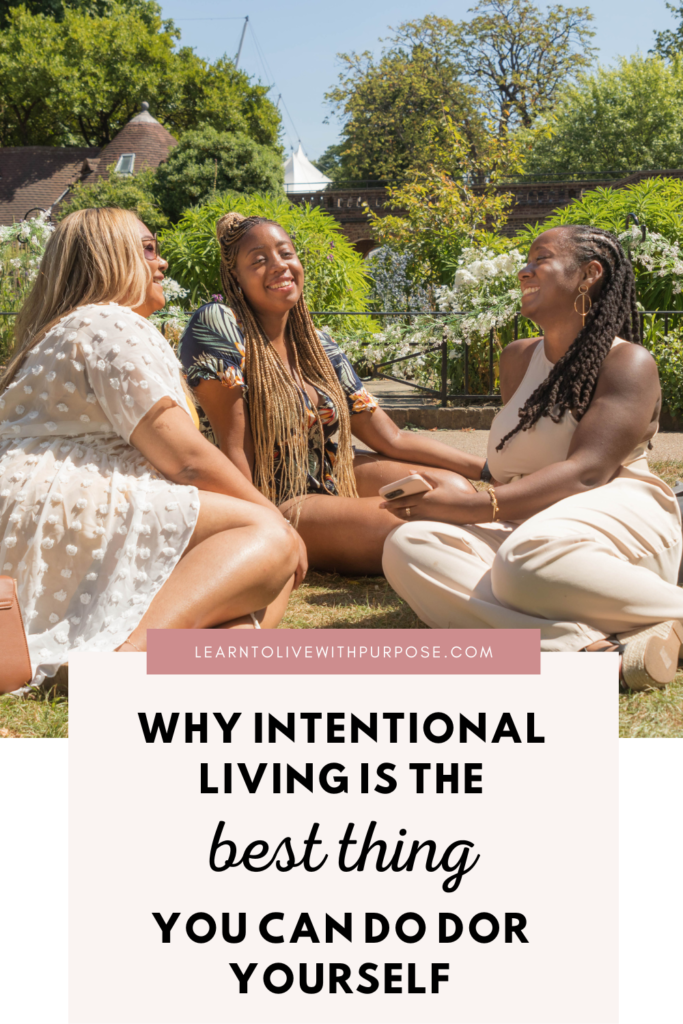
Related Blogs
How to Stop Procrastinating and Get Stuff Done
Did you know that people on my email list sometimes get exclusive discounts on my products? Join the community and save yourself some coins!
Freshly-squeezed inspiration, and no-nonsense tips + tricks to improve your life delivered to your inbox weekly.
Subscribe to my newsletter
Subscribe
You're all signed up!
Be sure to whitelist our email address so that all the goodies make it to your inbox.
